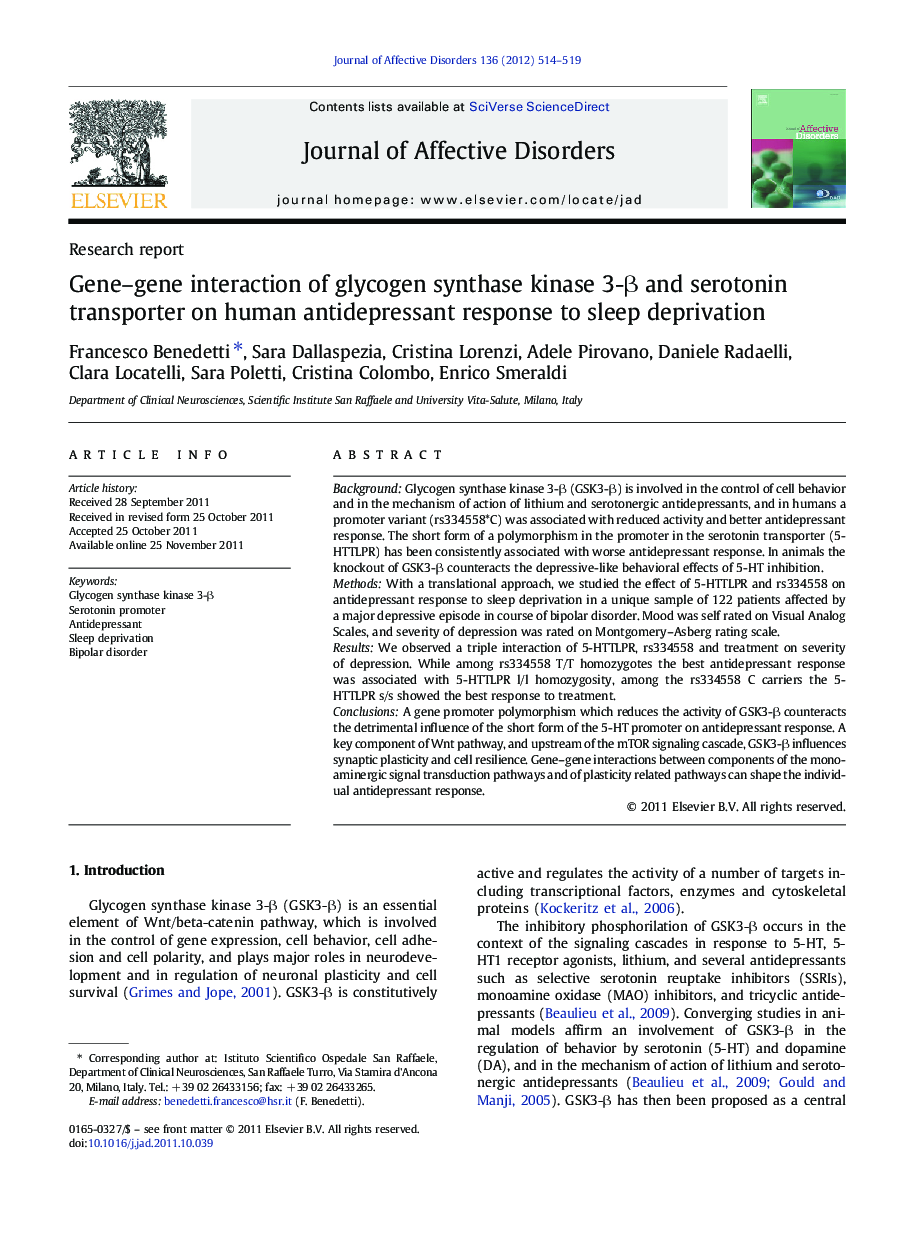| Article ID | Journal | Published Year | Pages | File Type |
|---|---|---|---|---|
| 6235393 | Journal of Affective Disorders | 2012 | 6 Pages |
BackgroundGlycogen synthase kinase 3-β (GSK3-β) is involved in the control of cell behavior and in the mechanism of action of lithium and serotonergic antidepressants, and in humans a promoter variant (rs334558*C) was associated with reduced activity and better antidepressant response. The short form of a polymorphism in the promoter in the serotonin transporter (5-HTTLPR) has been consistently associated with worse antidepressant response. In animals the knockout of GSK3-β counteracts the depressive-like behavioral effects of 5-HT inhibition.MethodsWith a translational approach, we studied the effect of 5-HTTLPR and rs334558 on antidepressant response to sleep deprivation in a unique sample of 122 patients affected by a major depressive episode in course of bipolar disorder. Mood was self rated on Visual Analog Scales, and severity of depression was rated on Montgomery-Asberg rating scale.ResultsWe observed a triple interaction of 5-HTTLPR, rs334558 and treatment on severity of depression. While among rs334558 T/T homozygotes the best antidepressant response was associated with 5-HTTLPR l/l homozygosity, among the rs334558 C carriers the 5-HTTLPR s/s showed the best response to treatment.ConclusionsA gene promoter polymorphism which reduces the activity of GSK3-β counteracts the detrimental influence of the short form of the 5-HT promoter on antidepressant response. A key component of Wnt pathway, and upstream of the mTOR signaling cascade, GSK3-β influences synaptic plasticity and cell resilience. Gene-gene interactions between components of the monoaminergic signal transduction pathways and of plasticity related pathways can shape the individual antidepressant response.
